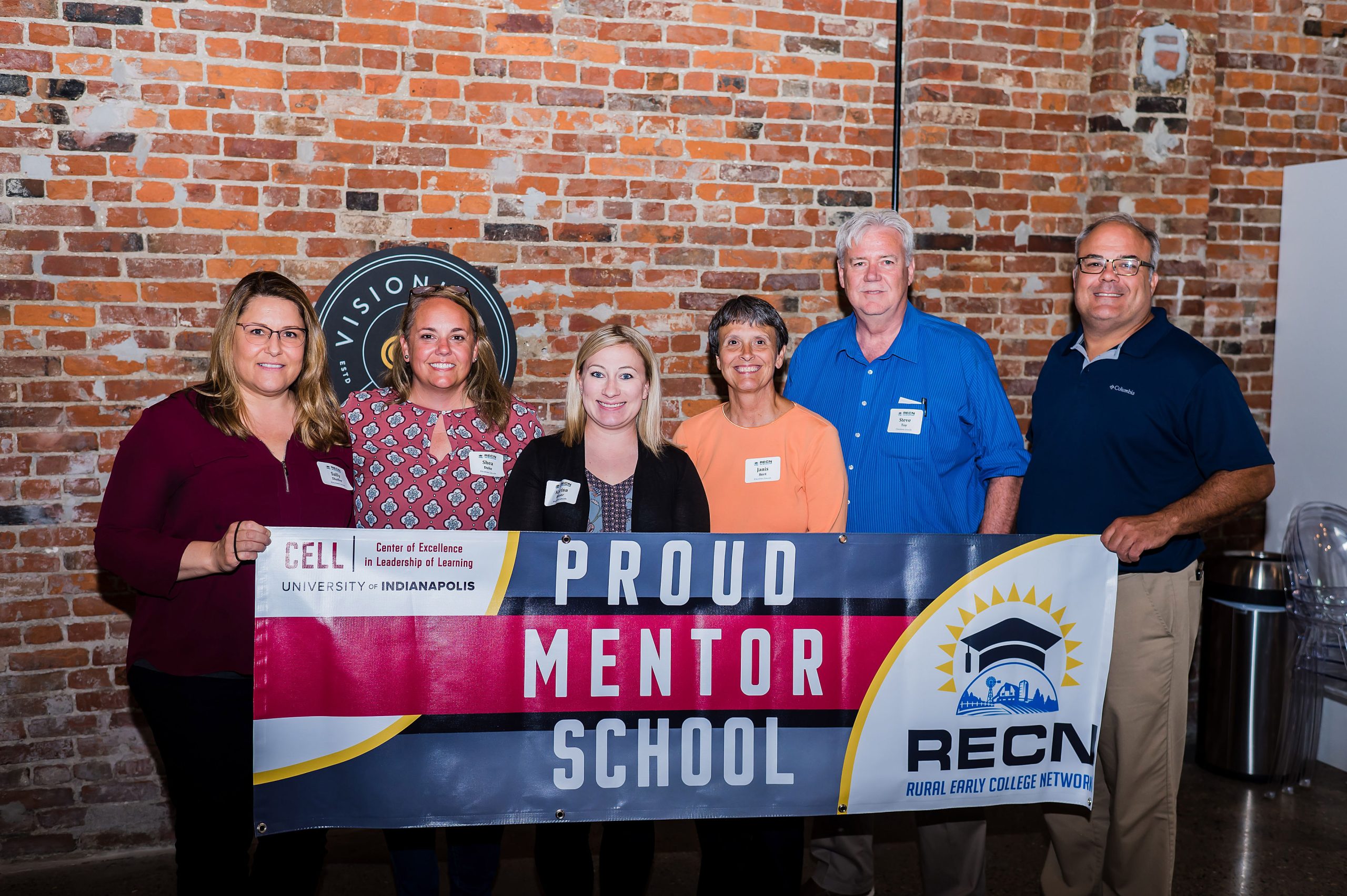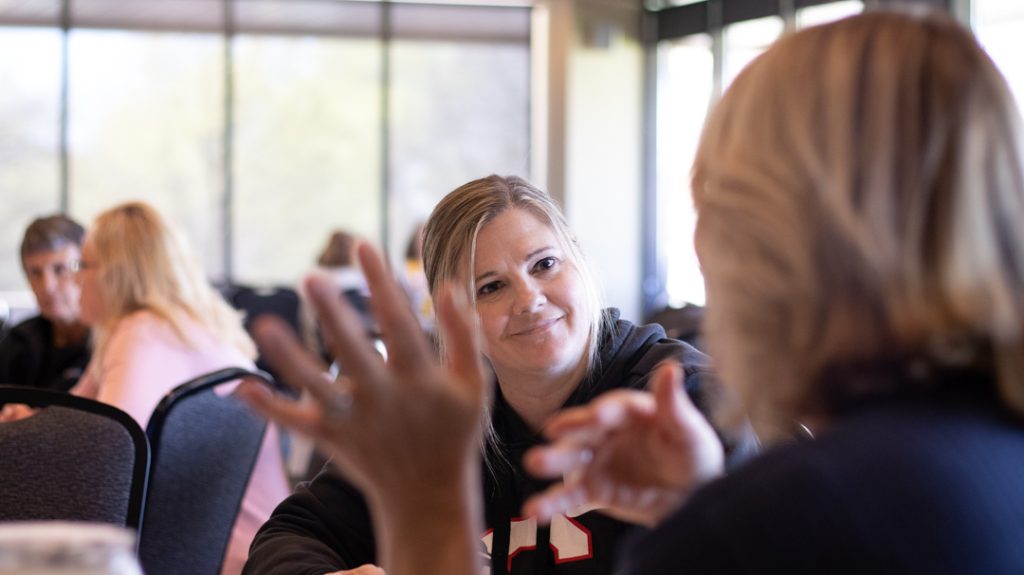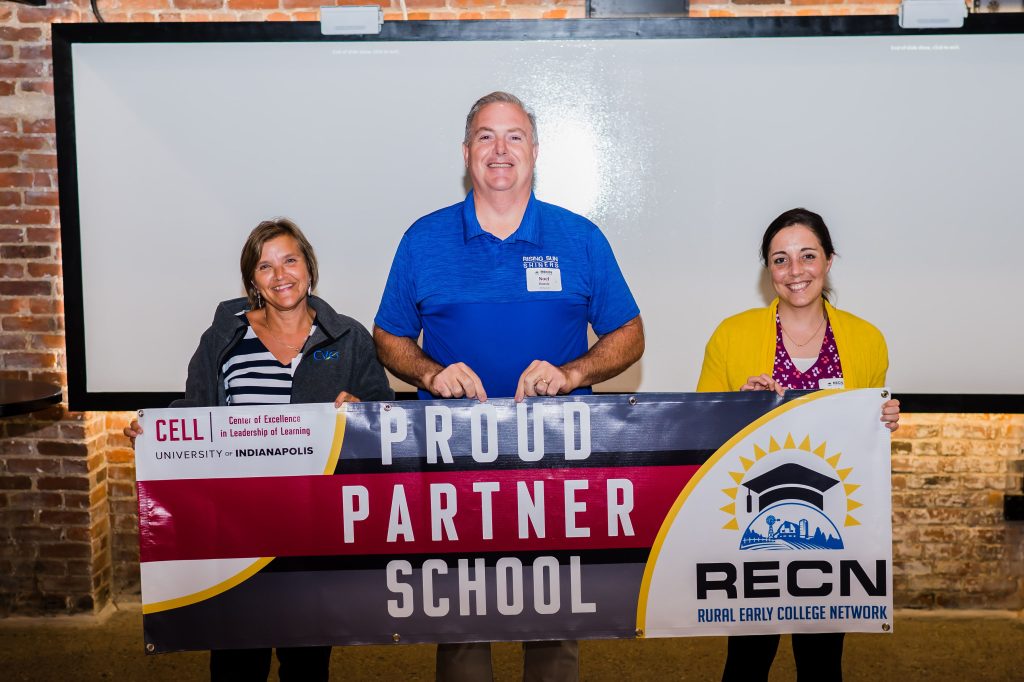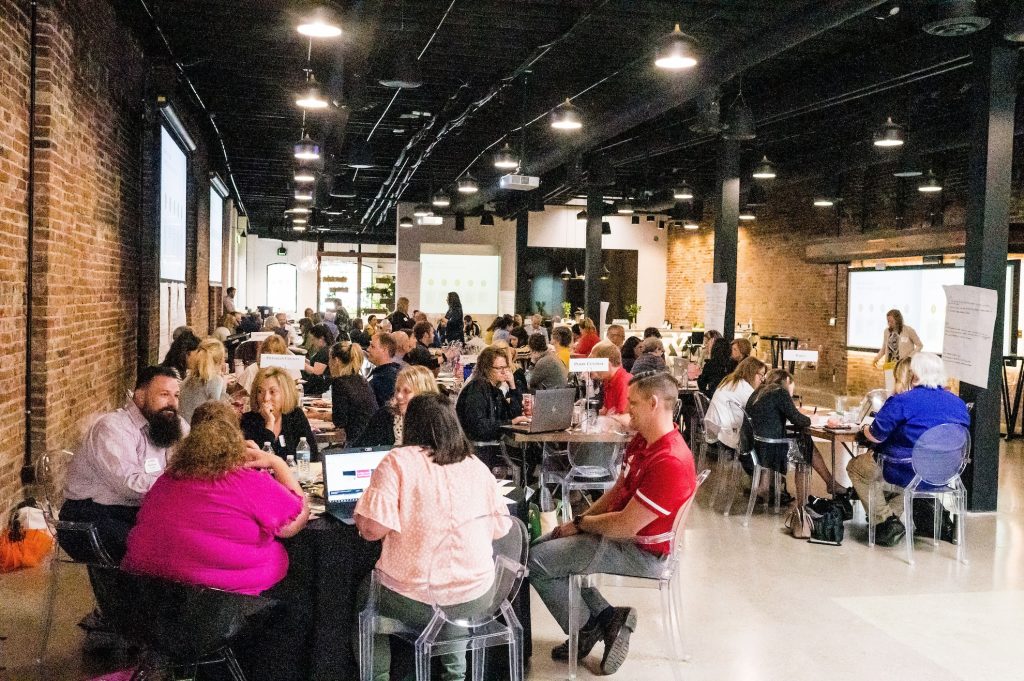Federal grant to CELL will improve educational opportunities for 11,000 rural high school students

The Center of Excellence in Leadership of Learning (CELL) at the University of Indianapolis has received a $10 million Education Innovation and Research (EIR) grant from the U.S. Department of Education to lead the Rural Early College Network (RECN) 2.0, an initiative to help rural high schools provide advanced coursework and build a pipeline of qualified dual credit teachers. Through RECN 2.0, CELL will support rural high schools across 20 districts as they implement Early College programs, providing access to college coursework in high school and improving college-going for underserved students.

The first iteration of the RECN project was launched in 2019 through an EIR grant and served 20 schools over six years. Students benefit from college exposure and tuition savings by taking college-level courses while in high school, making them more likely to go on to college. RECN 1.0 saw impressive results; for the 2022 cohort of RECN 1.0, 75% of Early College High School graduates went to college, compared to a 53% state average.
“RECN’s emphasis on relationships through our network activities generated positive impacts on each school, its staff, students and families,” said Janet Boyle, Director of the Rural Early College Network at CELL. “Over $15 million in tuition savings was realized by the 20 RECN schools, and Early College is now an established, vital offering in each school.”
Through RECN 2.0, CELL will support schools as they work to establish an Early College program, a nationally recognized model enabling students to earn college credit while in high school and removing barriers between high school and college.
In Indiana, CELL endorses–or accredits–high-quality Early College High Schools based on their adherence to targeting underserved students and meeting seven other core principles, such as establishing a college-going culture and providing strong student supports. Sixty high schools across the state are currently endorsed. CELL’s Early College work also enables schools to offer the Indiana College Core – a block of 30 general education credits transferable to any state and many private universities – helping schools meet state requirements and giving students a head start on future plans.

In RECN 1.0, five rural high schools with endorsed Early College programs mentored schools seeking to implement an Early College program. As part of RECN 2.0, five schools that received mentoring during RECN will now serve as mentors in RECN 2.0 to the next cohort of schools, multiplying the student impact.
“Rising Sun High School was honored to be part of the inaugural Rural Early College Network (RECN) through CELL,” said Noel Bostic, principal of Rising Sun High School (see photo at left). “The project provided invaluable insights and core principles that allowed us to become an endorsed Early College High School. Through networking with other rural schools in RECN of similar size plus connected mentoring from CELL, our Early College program has thrived. Today, 25% of our graduating classes consistently earn an associate degree.”
Schools in the RECN network earned the recognition of becoming a CELL-endorsed Early College High School 1.5 years faster than average through intensive mentoring and development. RECN 1.0 also helped schools grow their pipeline of qualified dual credit teachers. Across the 20 schools, 127 teachers are now credentialed to teach dual credit courses, with 71 teachers credentialed or on track to become credentialed through the project. RECN 2.0 will help CELL serve a new cohort of schools and apply lessons learned from RECN 1.0, including the addition of professional development for dual credit teachers and school counselors.
Recruitment for RECN 2.0 will be open March 3-28, 2025. Interested schools can reach out to Janet Boyle at boylej@uindy.edu for more information.

The Rural Early College Network (RECN) 2.0 project is being funded entirely through federal support, with 100% of the total project costs–amounting to $9,997,658.00–financed by federal funds. No portion of the project’s cost will be financed by non-governmental sources.
